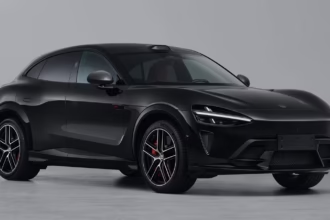Amid ongoing supply chain challenges, Volkswagen and General Motors (GM) have taken bold steps to secure lithium supplies critical for electric vehicle (EV) batteries. Volkswagen acquired a 9.9% stake in a Canadian lithium mining company on June 8, 2025, ensuring a 10-year supply of battery-grade lithium.
Similarly, GM committed $650 million to develop a major lithium deposit in Nevada, marking one of the largest such investments in the U.S. These moves reflect a growing trend of vertical integration as automakers seek to insulate themselves from volatile raw material markets.
Lithium, a key component in EV batteries, has become a focal point as demand for electric vehicles surges. With China’s recent restrictions on rare earth exports and fluctuating metal prices, automakers are under pressure to secure stable supplies.
Volkswagen’s Canadian investment aims to support its ambitious goal of producing 50% electric vehicles by 2030, while GM’s Nevada project strengthens its domestic supply chain, reducing reliance on foreign minerals. Both companies are also exploring recycling technologies to supplement new mining ventures.
These strategic investments come at a critical time, as U.S. tariffs and global supply chain disruptions threaten production schedules. By controlling their lithium supply, Volkswagen and GM aim to maintain competitive pricing and avoid delays in EV rollouts.
However, scaling mining operations is capital-intensive and faces environmental scrutiny, posing challenges for rapid deployment.
Industry analysts praise the proactive approach but caution that diversified sourcing and technological innovation will be essential to meet long-term EV demand. For now, these investments signal a shift toward greater self-reliance in the automotive sector.






